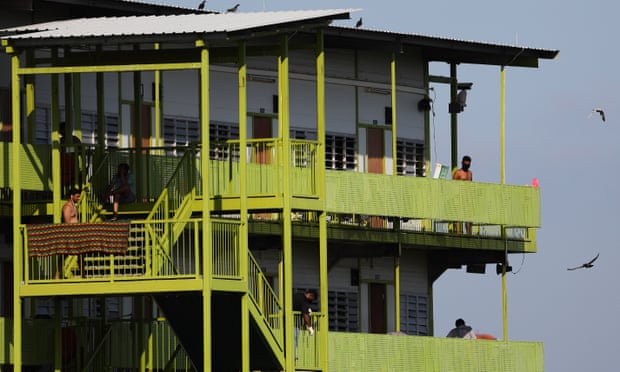

(C) The Guardian
The COVID-19 lockdown in multiple countries has brought economic activities to a standstill, which has largely impacted the migrant workers across the world. According to a report by the World Bank, the lockdown in India has affected the livelihoods of nearly 40 million internal migrants of the country.
“Around 50,000–60,000 moved from urban centres to rural areas of origin in the span of a few days,” the World Bank stated in its report observing the movement of migrants amid unprecedented lockdown. The World Bank pointed out the China and India each have over 100 million internal migrants who travel from under-developed rural areas to urban economic centres in search of an escape from poverty and unemployment. Remittances from these migrant workers serve as lifeline and insurance for families at homes.
Coronavirus containment measures such as lockdown, border closures, restrictions in the movement of public transport services, among other factors have placed many internal migrant workers in severe conditions. Most of these migrants worked in informal jobs. With no jobs or money, they are not even to return to their hometowns due to restrictions and are forced to live in unhygienic and overcrowded shelter homes or slums. Furthermore, without proper housing and adequate access to basic health facilities, water, and sanitation, the migrants have become more exposed to the risks of the pandemic.
According to the World Bank, migrants and their families have largely been excluded from the governments’ policy responses to the COVID‐19 crisis. Therefore, the international financial institution called for the governments to include the internal migrants in their health strategies and programs to provide them basic medical services and financial aid, and importantly protect them from discrimination. The organization also observed the Indian government’s attempt in providing assistance to the stranded migrants by setting up camps with basic facilities across multiple cities. The stranded workers are provided free food and financial help by both Central and state governments in the country.
Not only internal migration, but COVID-19 has crucially impacted international migration as well. Moreover, the World Bank has also reported that global remittances are likely to fall sharply by about 23 percent in 2020 in the wake of Coronavirus pandemic and the resulting economic crisis. Remittances to India are projected to decline by 23% from $83 billion last year to $64 billion this year due to shutdowns.
With the drastic decline in the incomes and employment of the migrant workers, these remittances are projected to fall. Speaking on the matter, World Bank Group President David Malpass said that remittances are a “vital source of income” for developing countries. He added that COVID-19 and the rising economic recession is taking a toll on migrant workers’ ability to send money home.
Notably, the global slowdown and travel restrictions owing to the pandemic crisis will affect the migratory movements and remittances are likely to remain subdued even in 2021.
Former President Donald Trump is taking legal action to strike down one of the topics on the forgotten list of…
As U.S. retailers like Walmart and Costco pursue alternatives to Chinese and Bangladeshi suppliers due to rising tariffs, India's garment…
U.S. worker productivity declined for the first time in almost three years in the first quarter of 2025, in a…
According to the Ministry of Health, Labour and Welfare in March 2025, Japan's inflation adjusted real wages fell by 2.1%…
BluSmart Mobility, once viewed as India’s green ride-hailing alternative, ceased operations in April 2025 leaving nearly 10,000 drivers unemployed without…
The India-UK Free Trade Agreement (FTA), recently learnt, has attracted some attention for one of its benefits enabling Indian workers…
This website uses cookies.
Read More